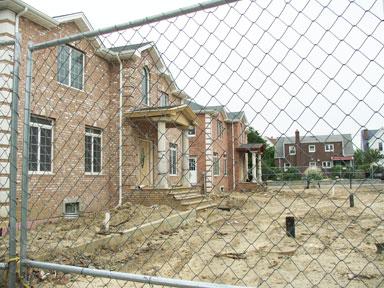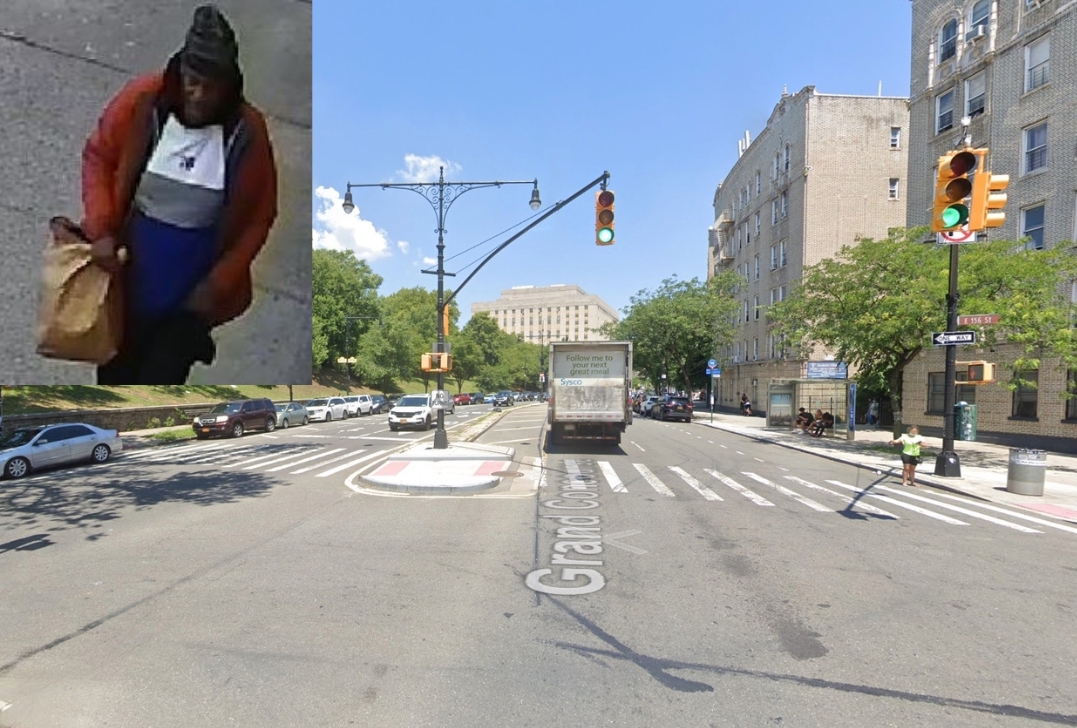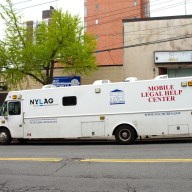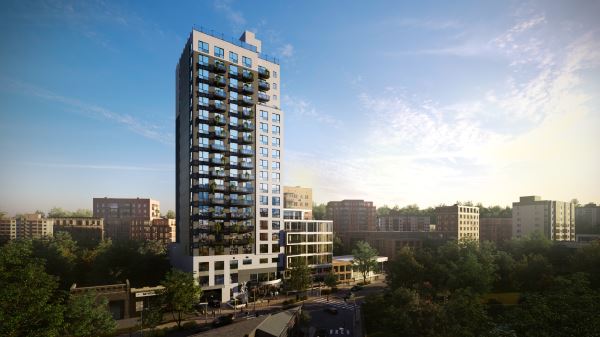Neighbors of five newly constructed homes in Country Club that cannot be completed due to non-compliance with zoning regulations, are getting fed up at the site’s appearance.
While the future of the former Finkle Mansion property which hangs in real estate limbo, dumpers and trespassers have gained accessed to the site, according to a neighbor.
The Department of Buildings claims that the homes built off Rawlins Avenue do not meet the area’s stringent R-2 zoning requirements, forcing the homes to remain vacant while the developer and DOB scramble to look for a solution.
“I have been calling the owner every day,” said Marcia Pavlica, president of the Country Club Civic Association. “He has been told the driveway gates were forcibly pulled down, and that there were television parts lying on the sidewalk area in front of the property.”
Pavlica said that a stop work order placed on the property is still in force, and the development’s plans were taken out of the hands of the Bronx DOB office and sent to the main office in Manhattan for review.
“Unfortunately, the developer circulated a petition to some of the neighbors,” Pavlica noted. “The petition, which some of the neighbors signed, called for the completion of the project. Those who signed must not have been aware of the ongoing negotiations between the DOB and the developer.”
Pavlica has said that despite the dumping of two televisions and the gate being pulled down recently, since the stop work order was put in place, calm has prevailed. She said, however, that the site still has ongoing issues.
“People are using the site as a dump, and the Department of Sanitation is refusing to clean up the mess,” said Doreen Murphy, who lives on the block.
Murphy explained that she had found some drug paraphernalia in front of the work-fence for the property, and has noted occasions when the gate was not always secured with a lock. She also believes that people have gained access to the houses.
Pavlica cautioned that conditions at the site are always changing, and feels that in the long term the DOB intervention could yield positive results for the community, but she nevertheless still feels that the DOB failed the community in the initial stages of construction.
The builder’s architect designed a private street, Teddy Place, to access the houses, but did not follow DOB guidelines. The property’s owner, Moshik Regev, EMI Progressive Equities, is now trying to acquire a waiver to legalize the project.
“This is another example of the self-certified plans of an architect that were incorrect,” Pavlica noted.





















